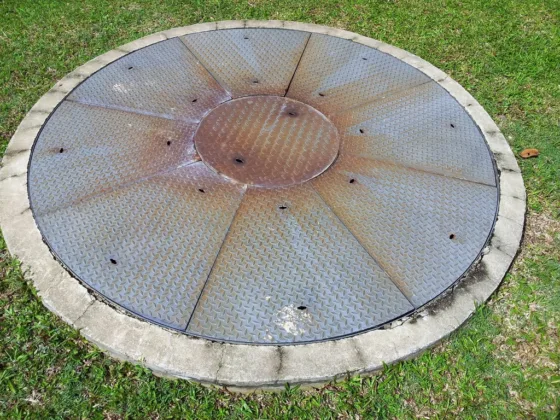Maintaining seniors’ freedom and quality of life becomes more crucial as they age. Seniors can receive individualized help and support in the convenience of their own homes using in-home care services.

Seniors and their families in Calgary can benefit by choosing in-home care services tailored to their specific needs. Let’s explore ten key advantages of choosing in-home care for seniors in Calgary. Let’s start!
1. Comfort and Familiarity
Seniors should feel relaxed both physically and emotionally as a result of comfort. Caretakers prioritize the comfort requirements of the senior, such as maintaining good hygiene and providing amenities like comfortable seating and a loving environment.
Along with providing confidence and emotional support, they also hope to develop a compassionate and trusting relationship with the senior.
Understanding and respecting seniors’ preferences, routines, and possessions are essential to familiarity. Professional carers take the time to learn about the senior’s likes, dislikes, and daily habits to ensure that their care plan corresponds with each person’s unique preferences.
Read Also :
To provide the seniors with a sense of continuity and familiarity, they create an atmosphere evocative of their home, complete with cherished possessions.
2. Personalized Care
After a complete assessment of the client’s physical, emotional, and cognitive needs, personalized homecare in Calgary can offer. This evaluation enables caregivers to comprehend the patient’s medical issues, movement restrictions, medication needs, and other considerations.
A personalized care plan is developed based on this assessment, defining the services and assistance offered. Then, caregivers in personalized homecare services provide care emphasizing tailored consideration for each client.
Depending on the client’s specific needs, they offer support with everyday tasks like bathing, dressing, grooming, preparing meals, and managing medications. They also consider the person’s lifestyle choices, cultural background, and personal preferences to guarantee a tailored and courteous approach.
3. Independence and Dignity
Independence is maintaining control over one’s everyday activities, decisions, and way of life. Home care providers respect their clients’ autonomy and encourage self-sufficiency by offering assistance that fosters independence, such as aiding daily living activities.
Permitting participation in meaningful activities and encouraging self-care whenever practical, they work to empower clients. Dignity includes upholding a person’s sense of value, respect, and privacy. Home care providers value treating their patients with the highest respect and preserving their emotional stability and moral purity.
They love their clients’ opinions, preferences, and cultural beliefs and treat them with compassion and respect while communicating and interacting. Providers foster dignity and respect for the client’s privacy and confidentiality while fostering a secure and nonjudgmental environment.
4. Safety and Peace of Mind
A compassionate, specialized service is present in Calgary, Canada. It focuses on providing customized, individualized care to people needing help and support at home. This service’s primary goal is to ensure the customers’ safety.
Well-being, and peace of mind while allowing them to continue living in the comfort and familiarity of their homes. Here are some significant features of Calgary’s personalized homecare for safety and peace of mind:
- Personalized care: To develop a care plan tailored to the individual’s requirements and preferences, caregivers consult frequently with patients and their families. It can involve emotional support, medication management, mobility help, and assistance with daily life activities.
- Safety precautions: By putting the clients’ safety first inside the home, caregivers offer that priority. It can involve spotting and eliminating potential dangers, ensuring adequate lighting, controlling fall risks, and fostering a secure living environment.
- Caregiver expertise: Calgary’s specialized homecare providers are qualified professionals with the training, knowledge, and experience to provide top-notch care. They might be licensed or qualified to provide specialist care for particular conditions, personal support, nursing, or other fields.
5. Companionship and Emotional Support
Refer professional carers who offer companionship and emotional support to people in need as “companionship and emotional support” caregivers. These caregivers are skilled professionals who provide companionship, emotional support, and social interaction to improve their clients’ overall well-being and quality of life.
Addressing the social and emotional needs of people who may be feeling lonely, isolated, or emotionally distressed is the primary goal of companionship and emotional support for professional caregivers. They frequently assist people who are elderly, have impairments, are recovering from illnesses, or have recently undergone surgery.
6. Flexibility and Customization
Flexible in-home care indicates that the services can be changed or adjusted to the client’s evolving needs. For instance, the caregiver can modify the care plan if the patient’s health or mobility changes.
Scheduling is also subject to flexibility, allowing patients to receive therapy at their preferred times and lengths, which can be especially useful for people with erratic habits or irregular work schedules.
Customized in-home care means adjusting the services to the person’s unique needs, preferences, and cultural background. It may entail creating a care strategy considering specific medical issues.
Mobility restrictions, dietary requirements, or individual preferences for particular activities and social situations. Individuals can receive personalized care to fit their values and lifestyle preferences, enhancing their comfort and well-being.
7. Continuity of Care
Flexible in-home care indicates that the services can be changed or adjusted to the client’s evolving needs. For instance, the caregiver can modify the care plan if the patient’s health or mobility changes.
Scheduling is also subject to flexibility, allowing patients to receive therapy at their preferred times and lengths, which can be especially useful for people with erratic habits or irregular work schedules.
In-home care providers strive to give a thorough and integrated approach to healthcare by concentrating on continuity of care. It encourages better outcomes, increased patient satisfaction, and a higher quality of life for those receiving care in their homes.
8. Cost-Effectiveness
Cost-effective senior home care is using resources as effectively as possible to offer high-quality care for older people in their homes while avoiding unnecessary costs. It entails providing services that successfully address elders’ unique requirements.
And preferences while optimizing resource allocation to produce the most outstanding results at a fair price. Achieving cost-efficiency regarding senior home care can be done in various ways:
- Personalized Care Plans: Individualized care plans can be created based on the particular requirements of each senior to avoid providing extra services or treatments and ensure that resources are practical.
- Home safety and modifications: Making the appropriate changes to a senior’s living space, such as adding safety features and aids, can help prevent accidents and injuries and lower medical expenses related to hospital stays or urgent care.
- Preventive measures: Seniors can stay healthier and avoid more costly medical issues by prioritizing preventative care and health promotion activities.
9. Medication Management
When someone needs help with their pharmaceutical regimen, medication management refers to monitoring and guaranteeing the safe and effective use of medications.
People who cannot manage their prescriptions independently can receive care and support from qualified healthcare professionals known as professional carers.
I know caretakers that specialize in managing drugs for their patients or customers as medication management experts. They could be any number of medical specialists, such as licensed pharmaceutical assistants, pharmacists, or nurses.
These experts are skilled at giving medications, observing their results, and avoiding adverse drug interactions or pharmaceutical mistakes.
10. Assistance with Activities of Daily Living
Elderly homecare entails specially trained caregivers or home health aides who offer tailored support with these ADLs at the convenience of the client’s home. These carers may be directly recruited by the person or their family or employed by homecare firms.
They are accountable for maintaining the senior’s security, comfort, and well-being while upholding their dignity and encouraging independence to the greatest extent possible.
Home care for older people aims to keep people living in their own homes while providing the aid they need to continue with daily activities and personal care. This kind of care can enhance the person’s quality of life, encourage independence, and provide their loved ones peace of mind.
Final Thoughts
Seniors in Calgary who receive in-home care reap many advantages, including comfort, individualized care, independence, safety, companionship, and flexibility.
It enables seniors to age gracefully in their homes while getting the help they need to keep up their standard of living.
It also gives their family members the peace of mind that their loved ones are being taken care of by professionals.
In-home care services in Calgary are a great option if you or a loved one are looking for a professional and compassionate care solution to support freedom and well-being in later life









